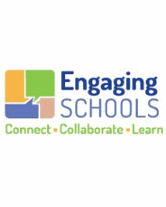A First Day Teaching Stance Might Look Like This
Respectful
- You can do four things the first day that let students know you want to be thought of as an adult who is respectful to young people.
- Your preparation of materials and the readiness and attractiveness of the classroom space will tell students they're worthy of your time and effort
- Your interest in learning all of their names as quickly as you can
- Your attentiveness to their questions and concerns
- Your interest in getting to know them as individuals.
Kids will shut down if you present yourself as a stern taskmaster, but don't try to be an MC on Comedy Central either. Balance and timing are everything.
FriendlyForget about that Don't smile until Christmas baloney. Nobody turns down a smile and a little warmth as a way of saying, Welcome back. On the other hand, being over-familiar and too personal are about as effective as being cold and detached.
InvitationalYou can't demand much of anything from adolescents without risking passive resistance. You can, however, invite students to cooperate and work with you. Use phrases like, I'd like us to… , I have a request to make…, For today, it would be helpful if everyone…, For the next five minutes, I'd like you to..., Because we need to...I'm asking if everyone will…., and of course, Please and Thank you.
Optimistic and PositiveAdolescents have hypersensitive radar that pick up every blip of negativism, cynicism, and sarcasm – after all, this is where they live! If you start dishing it out, they'll dish it back in a New York minute. Use positive language to frame your expectations and to state your guidelines and procedures.
PurposefulEverything you do should have a reason that extends beyond the first day. When you introduce procedures on the first day students should know why they're important.
KnowledgeableHave something in the room (a curious object, a stack of books, an interesting piece of equipment, a compelling photograph, a provocative quotation, a list of puzzling terms that are specific to your content area, a poster or article linked to your discipline or people who practice your discipline in the work world) that indicates your passion, curiosity, and knowledge of the course content.
OrganizedFeeling flustered when you can't find what you need RIGHT NOW is the day time version of your worst nightmare. Label, color code, and box everything for different classes, make more than enough copies, make a special tray for all the tools you need for the day, and don't use any electrical equipment if there's even a minute chance that it might go haywire.
SequentialThis is not the day to skip around randomly from one thing to another and hope that all will be revealed in the last five minutes. Students should be able to see the connections among the activities you do the first day.
Clear and SuccinctNo long-winded speeches, no confusing instructions, no complex tasks - keep it simple.
Calm and Low-KeyIf quiet, uneventful, and smooth are words that come to mind at the end of your first day, you're good to go.
- More Personalizing the Secondary Classroom
Adapted from Partners in Learning: From Conflict to Collaboration by Carol Miller Lieber.















